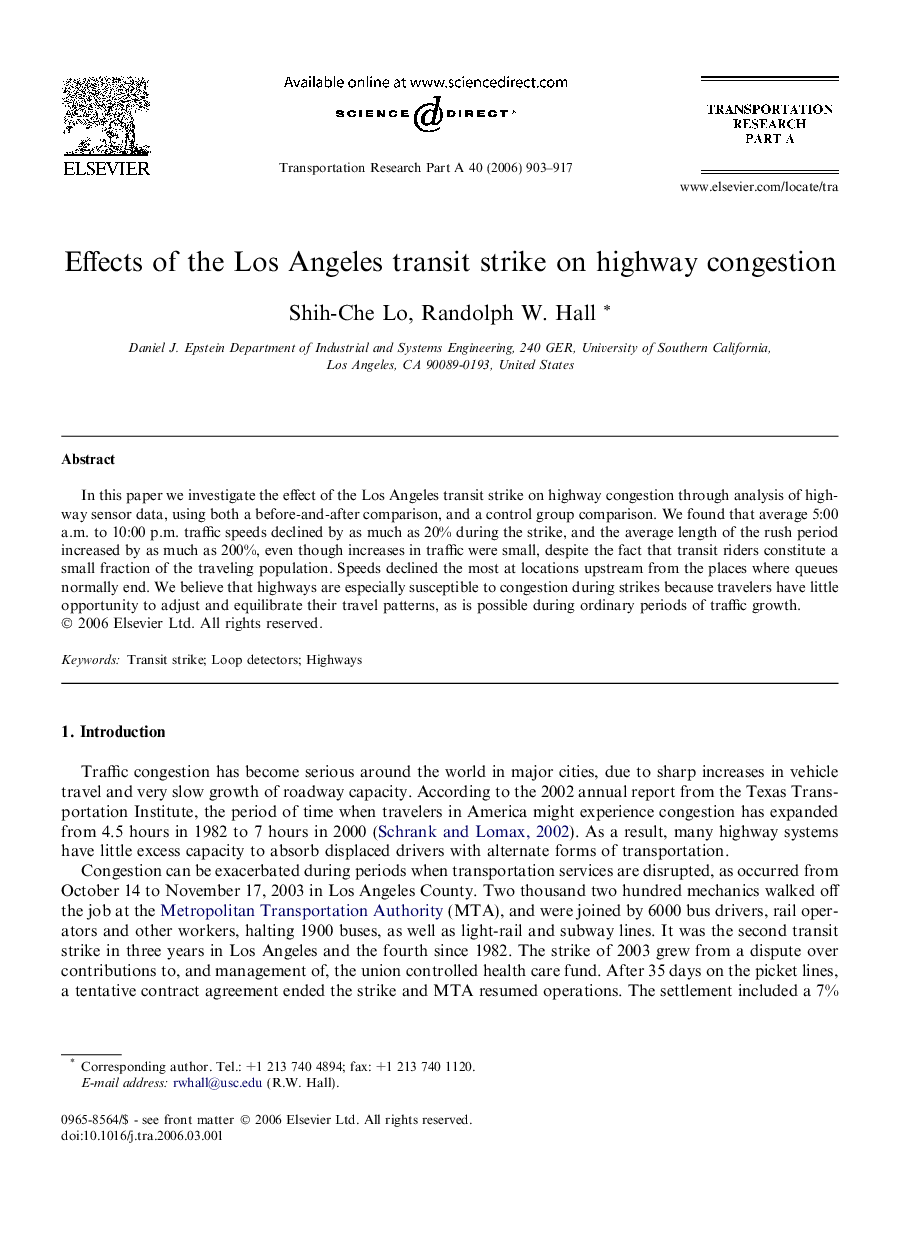| Article ID | Journal | Published Year | Pages | File Type |
|---|---|---|---|---|
| 311206 | Transportation Research Part A: Policy and Practice | 2006 | 15 Pages |
In this paper we investigate the effect of the Los Angeles transit strike on highway congestion through analysis of highway sensor data, using both a before-and-after comparison, and a control group comparison. We found that average 5:00 a.m. to 10:00 p.m. traffic speeds declined by as much as 20% during the strike, and the average length of the rush period increased by as much as 200%, even though increases in traffic were small, despite the fact that transit riders constitute a small fraction of the traveling population. Speeds declined the most at locations upstream from the places where queues normally end. We believe that highways are especially susceptible to congestion during strikes because travelers have little opportunity to adjust and equilibrate their travel patterns, as is possible during ordinary periods of traffic growth.
